Hunger, Prayer, and Hazelnut Sprouts
Planting an infrastructure of care in an age of doom
The decay spreads over the State, and the sweet smell is a great sorrow on the land. Men who can graft the trees and make the seed fertile and big can find no way to let the hungry people eat their produce. Men who have created new fruits in the world cannot create a system whereby their fruits may be eaten. And the failure hangs over the State like a great sorrow.
John Steinbeck, The Grapes of Wrath
Abandoned caches of wild hazelnuts are sprouting out from under wet leaves in the robin-song between rains, secreted away by mice and squirrels, their radicles reaching down into the moist duff and forking, their first leaves bright and wet with awakening. After a couple of concerningly dry weeks, precipitation has returned to Northeast Missouri, and like the robins, I flit between tasks during breaks in the rain– they probe the quenched earth beside me as I work to transplant crops, cultivate garden rows, or mow fresh paddock pathways with my scythe, forever keeping the spiral of photosynthetic momentum moving outward, building flesh and fat with growing grass.
The garden beds are filling with tender young plants– peppers, tomatoes and eggplants tucked neatly into their mulched nests, and the broad plots of corn and dry beans have begun sparkling with the verdant hope of new life. Hogs snore contentedly in the shelter of eastern red cedar, and when the sky is clear of rain, barn swallows, kingbirds, and great-crested flycatchers careen and pirouette through the clouds of flies and gnats that seem to rise from the damp earth. The once-thin cottontails, battered and gaunt from winter hunger now shine fatly in the unfurling bloom of brush, nibbling clover, hopping fearlessly between patches of the stuff. The cows are thick and their milk is gilded with heavy cream, and fat, fecund ducks waddle through deep grass with their fuzzy young, stripping the young wet seeds from the stalks. Our own larder, outside of milk, eggs, assorted weeds, and the remainder of last year’s squash and sweet potatoes, is a bit sparse in comparison with the robins and rabbits.
While this welcome rain will surely bring fresh greens and berries and perhaps mushrooms to our plates soon, we exist, for the time being, in the late days of the hunger gap. Much of the nettles have gone to seed, and the asparagus is slowing down. The collards and lettuce and kale are all available to raiding slugs, but have not grown out enough to make a considerable harvest. Were I a lucky fisherman or a cheerful forager, our diet might contain more diversity, but I prefer seasons of labor with a guaranteed yield over slapping mosquitoes in the brush for something that might be available. While young green currants and small white strawberries gradually swell and sweeten and, and the earliest of mulberries begin to blush with the heat of deep spring, whispering promises of times of plenty, my hunger grows.
To plant a seed, to prostrate oneself upon receptive earth and tuck packets of carefully stewarded genetic materials into the embrace of live dirt, is the only prayer I offer– the casting of some small, faithful request towards an unknowable creative force that shapes the function of life on this planet. It’s a little bit like church, but unlike church, requires follow-through more than once a week. As agrarian people, we need to back any faith in a higher power with total commitment and demonstrable action.
The rain has stalled, and the sun’s brief re-emergence has swept the windblown canopy of oak and elm and shining hedge into a cacophony of birdsong– scolding cardinals, trilling sparrows, and the repetitive, anxious overtures of an excitable brown thrasher. As mother robins tirelessly dive-bomb the open soil of freshly worked garden beds, stuffing the gaping beaks of their young with wriggling worms, I attempt to rise to the occasion myself, but find my creaking joints and sore limbs unable to muster the necessary momentum. The last couple of weeks –particularly the final few hours before rain– have left me exhausted. Even my finger bones feel overworked from gripping hoes and rakes and shovels and scythes. I have offered my prayers as corn and beans. A day or two of resting while it rains, and then I must follow this act of faith with acts of commitment.
Snipping nettles and lambsquarters as my gut grumbles, I’ve grown accustomed to this hunger. Bloated, floating bumblebees, heavy with pollen buzz from bloom to bloom, and even the ruby-throated hummingbirds have begun to zip along the thick crop of comfrey lining my garden. Free meals abound for the birds and bees and other well-adapted fauna, who do not lack motivation in working to obtain them. Of course, I’m relatively privileged in that my physiological hunger is easily curable. Even with a low-income, cheap calories are plentiful in my living situation. The irony of spending my life and labor growing food “the hard way” at a time when food has never been more abundant or more efficient to produce isn’t lost on me. But as the institutions and infrastructure facilitating the mass-production and distribution of cheap calories teeter on the brink of failure in the face of political and economic chaos, and the earth itself –the living soil, the supportive biotic network, and it’s complimentary climate cycle– that ensures this continued production further destabilizes and tailspins in an era of complete extraction, the hunger that grows in me can’t be cured by peanut butter and crackers, or even a really good home-grown tomato.
By and large, I will always believe that it is important to localize our food-growing, particularly in uncertain times. It can lead to more resilient communities, and keep people rooted in a stewardship relationship with land– I imagine most of y’all know and believe this to some degree. That said, the return to any type of quasi-subsistence land-based culture is increasingly unlikely as technology advances and our population increases. Sustainable and regenerative agricultural practices (and all practices encompassing material sustainability and ecosystem stewardship) need to extend beyond the backyard and small farm– not only in terms of how food is grown, but in how it is equitably distributed. Of course, there are a few people with a disproportionate amount of wealth and power who will not willingly allow this to happen. Not because they’re stupid or evil –though a lot of them probably are (and they certainly employ ideological political servants who are stupid and evil)– but because they’re greedy.
The top economic one percent in this world has access to enough information to clearly understand the peril this planet faces, and that it is their fault. They own the insurance companies that reckon with climate chaos. They extract and refine the fossil energy that creates it. They operate the supply-chains and design the policies that literally determine life and death for the rest of us. Militaries exist to serve their interests above all. They’re keenly aware that life on earth is facing a catastrophe of their own making– and they understand that their options going forward are to either relinquish their own power and consumption, or make poor people poorer. And so, I can plant my seeds, and say my prayers, but once the ritual ends, it’s time to take action. This is what I hunger for.
Hunger doesn’t always lead to the best decision making. In our livestock, I see it lead to stress or aggression. If a paddock isn’t moved quickly enough, our goats begin to take risks, like attempting to jump the electric fence. I myself get grumpy when I’m hungry– my nervous system goes out of whack alongside my blood sugar, and I make dumb mistakes or lose my cool. When whole groups of people feel hungry for long enough, things sometimes devolve into infighting, or end in resignation and physical weakness. Once in awhile, hunger even leads to revolution.
Like many people, I’m sometimes all too eager to see an end to the longstanding imbalance of power created by our global economic system. But I’ve also seen too many hungry pigs and angry people to personally want to head into that change without a stable and equitable infrastructure of care in place. Anyone, no matter how politically incoherent, can depose a tyrant with enough motivation and luck. Perhaps there’s even some moral imperative to end the immediate harm to our planet as quickly as possible– at the very least I don’t believe I’d stand in anybody’s way. But what I hunger for most isn’t acts of violence that give the 1% an easy way out, so much as forcing them to live in a just and equitable future. So I’m planting seeds in brief prayer– not just to feed myself and my closest people, but so that we can have more seeds to plant next season.
My garden doesn’t always provide me with exactly what I want, in terms of yield. In fact, sometimes the best things I get from it originate from outside my control. In the process of prepping garden beds for transplanting, I came across more sprouting caches of hazelnuts– small, youthful, shining trees still in their early infancy, poking through the living dirt and standing their ground as I mercilessly hoed out creeping runners of grass and nettle, shaking with sweat before the rain. I stopped and caught my breath, and gently lifted them out with a trowel, swaddling their delicate root hairs in a nest of wet newspaper. When I’m content with what I’ve written for the day, and before the next bout of rain –whichever arrives first– I will plant them somewhere to alleviate the hunger of blue jays and crows and deer and squirrels, or if necessary, people. It may be a small action, but that’s something more than a prayer. They’re just wild hazels; bountiful and sweet, but small and thick-shelled. Nothing special, but perhaps this is the infrastructure of care and equity I’ve been thinking about. Not a gourmet nut, just a nut for everyone who needs one.
I’ve never been too big into the idea of abundance. As a small farmer forced to direct market my wares, an abundance of crops –a glut if you will– is more a burden than anything else, until it has been converted into income. I live far from the people who need what I produce the most, and distributing this “abundance”, even for free, is a challenge. Lately, “abundance” has become a buzzword among well-meaning liberals seeking a kinder, gentler capitalism. As a farmer attempting to earn right livelihood practicing a kinder, gentler agriculture, I too fall into this fantastic trap of somehow believing that growing a regenerative, sustainable, perennial product is going help others and earn myself a decent living. But so long as our working definition of abundance allows for the concentration of that abundance to ultimately fall into the hands of the few, the world will get hotter, and people will get poorer and hungrier.
With a storm billowing around the edge of this clay-ridden slope, I take a walk with my dog and a handful of sprouting hazels, out past the eroded shoulder of the hill where in the dim light Shining Ladies’ Tresses (Spiranthes lucida) is blooming in the thin soil– a specialized prairie orchid both subtle and fantastic– supported beneath the dirt by obligatory mycorrhizal networks, and pollinated only by sweat bees (Halictidae). The sun is entirely shrouded in storm clouds now, and still the robins dart between the wet earth and their nests of pleading, hungry young. With the wind gathering, and the dog prancing in it, I kneel and trowel in a dozen hazelnuts along an old fence-line, facilitating their nourishment, and perhaps my own. I place them in the unknowable embrace of live soil –microbial communities, fungal networks– a functional infrastructure of care. No prayer need be uttered.
As of this writing, House Republicans have advanced a budget that would cut $300 billion from the Supplemental Nutrition Assistance Program (SNAP), at a time when food banks are already struggling to meet increased demand. For every meal served by a food bank in the U.S., SNAP provides nine meals. This is in addition to recent cuts and “pauses” to USDA programs like Local Foods to Schools and Local Food Purchase Assistance and the Emergency Food Assistance Program. These programs don’t only help the poor, but also circulate money in depressed economies. The poverty is the point.


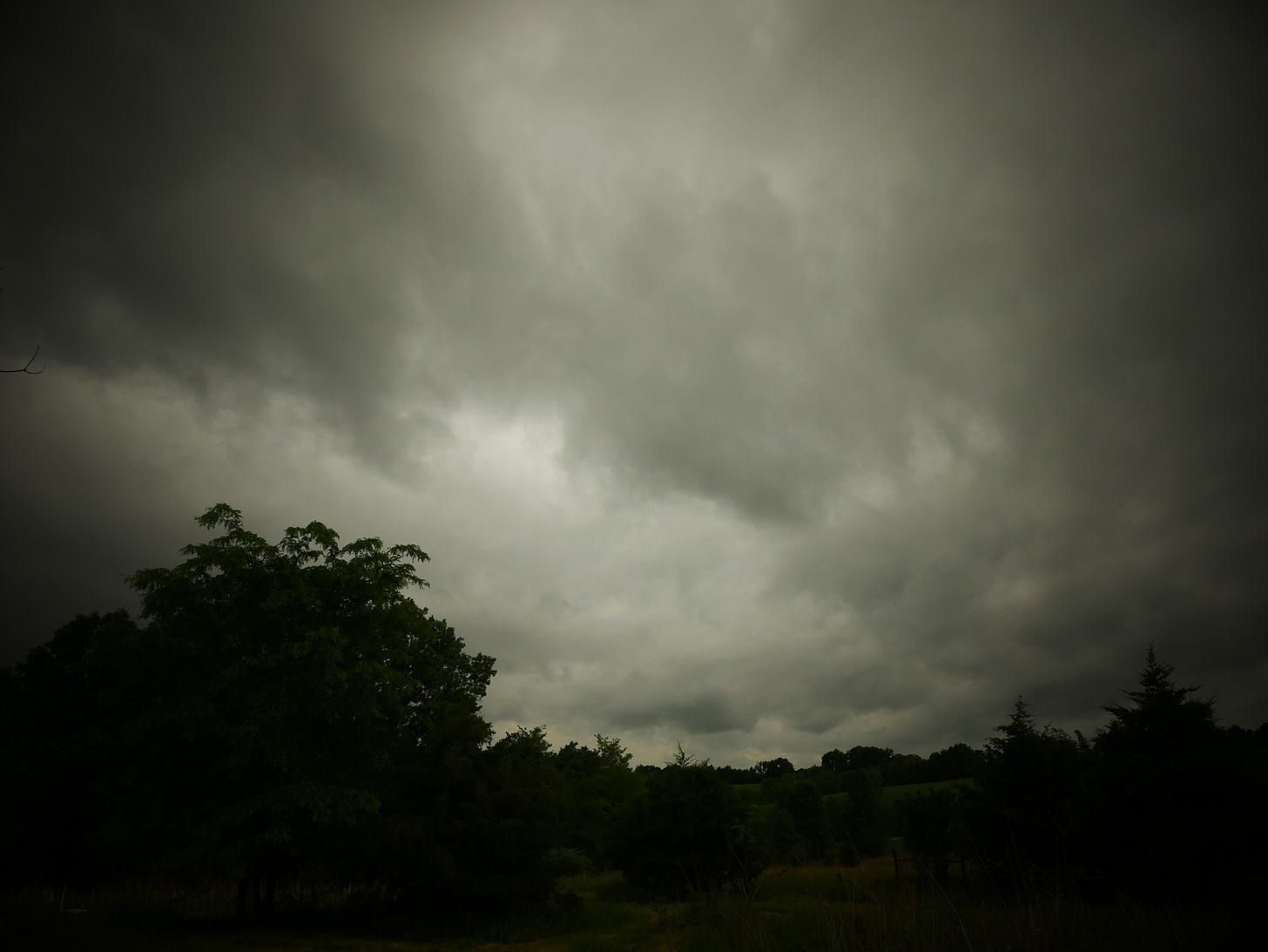
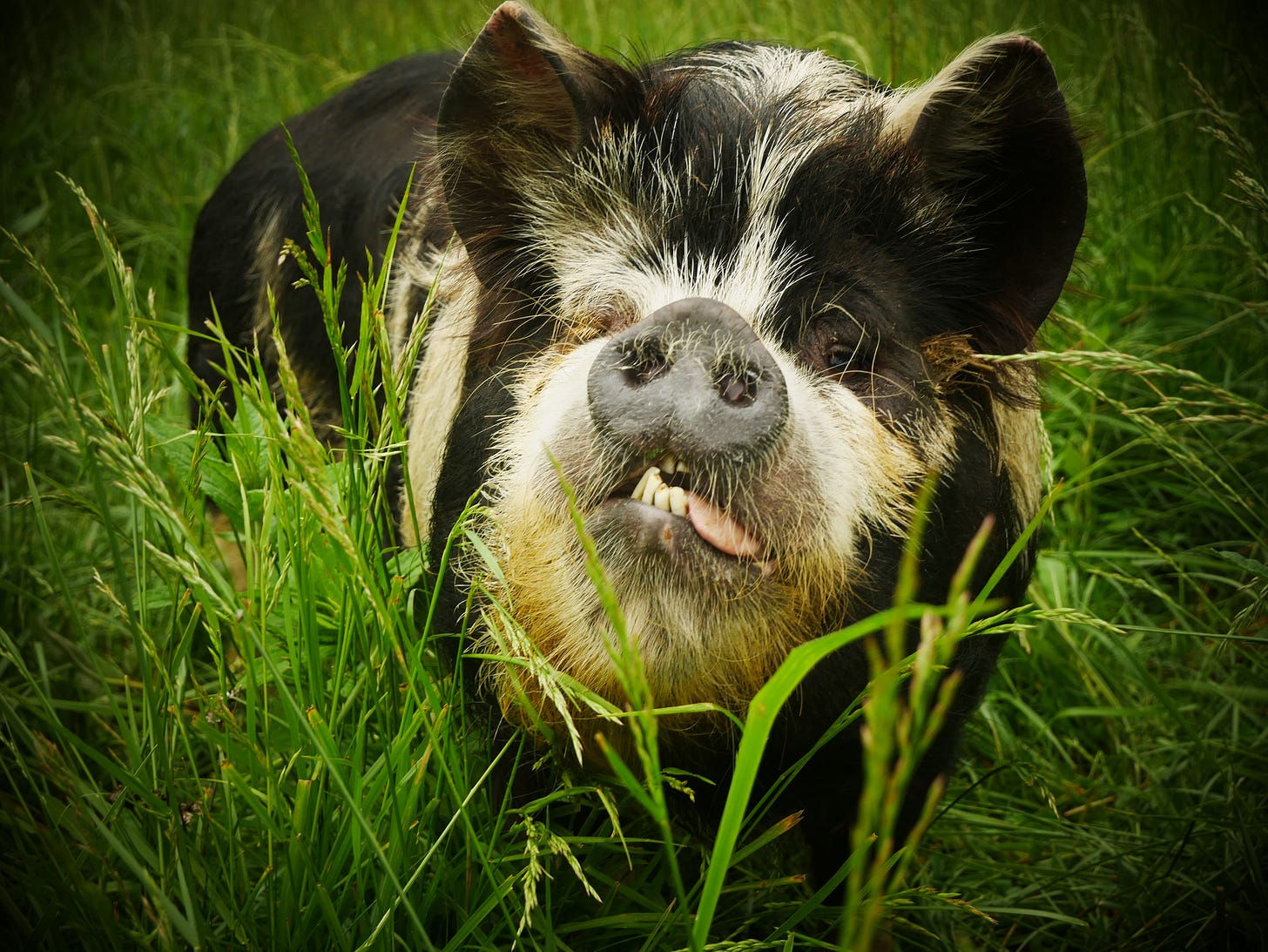
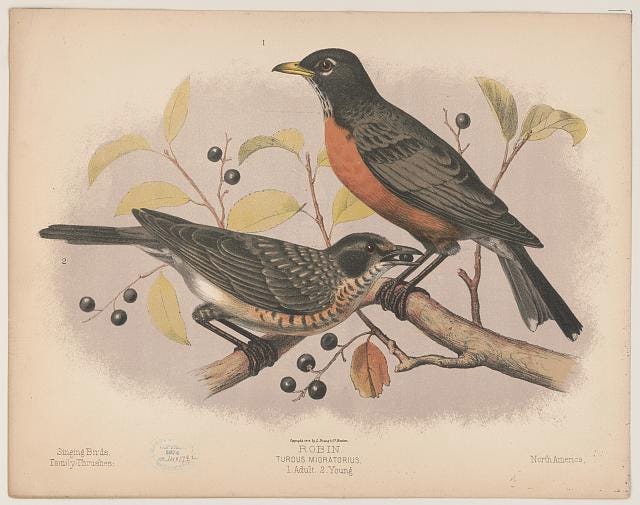
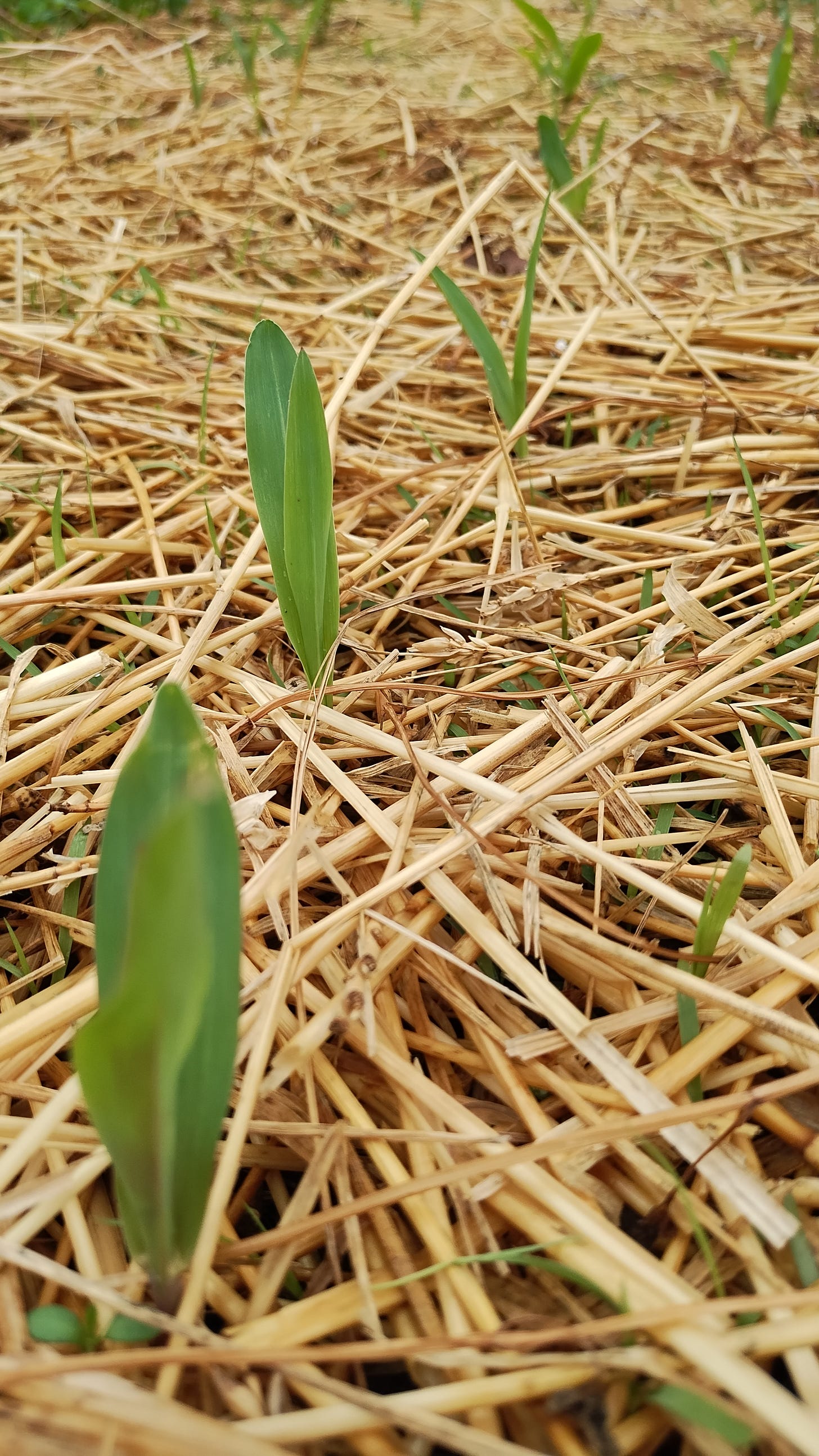
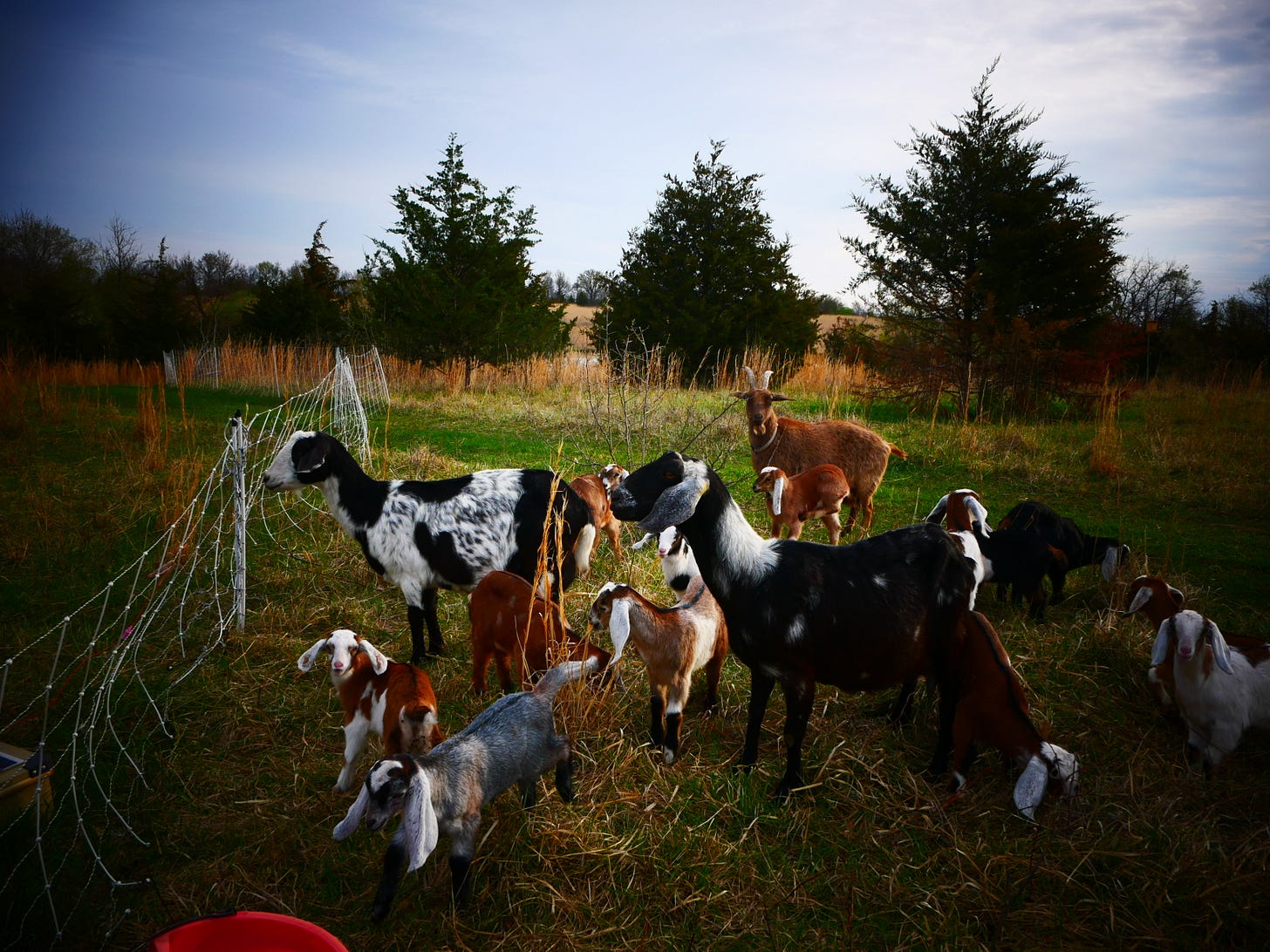
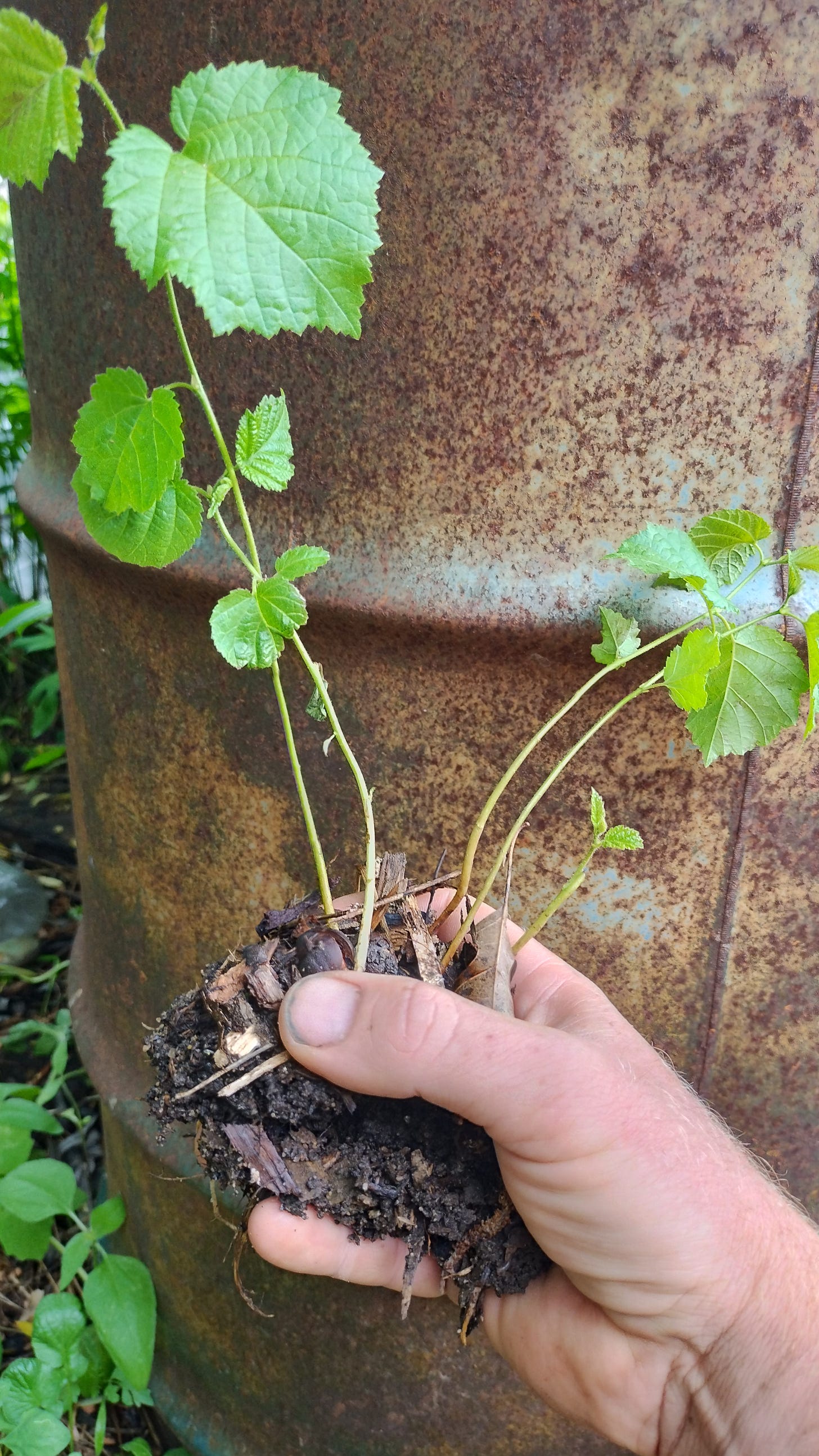
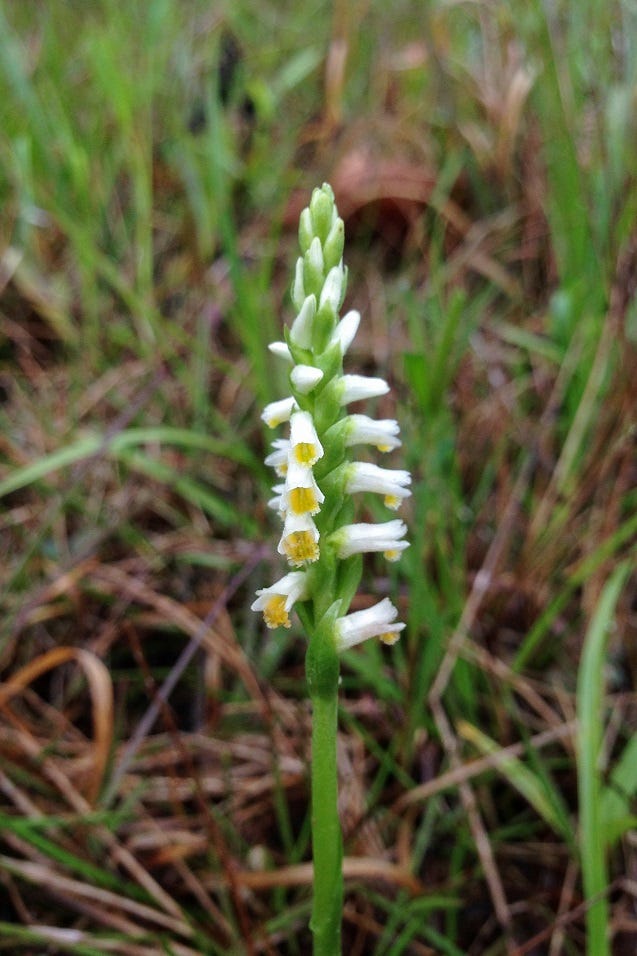
What a great post! Hunger is something I am familiar with, for in the last year we have gotten into intermittent fasting, so not eating for 24 or 48 hours at a time... Sometimes it is easy, sometimes it's not, but it is definitely healthy and I really enjoy fasting. People today seem not to like putting themselves in uncomfortable situations, however I think of it as a training of sorts for the future - and it's healthy, as long as you do it the right way, eating healthy homegrown food when you do eat.